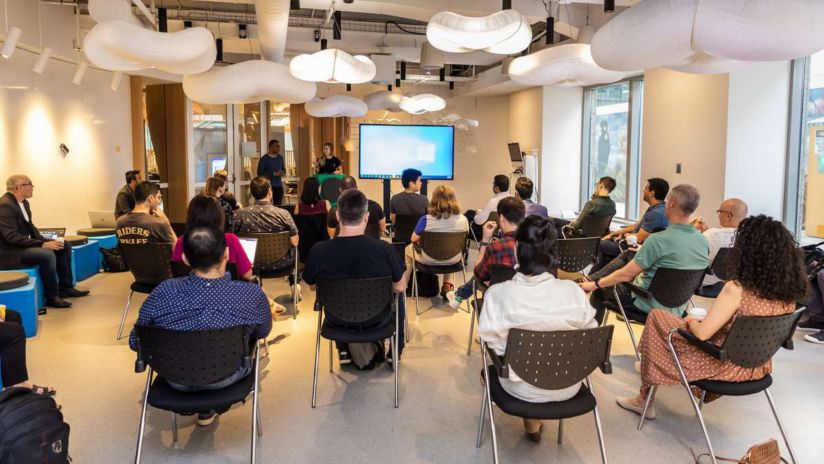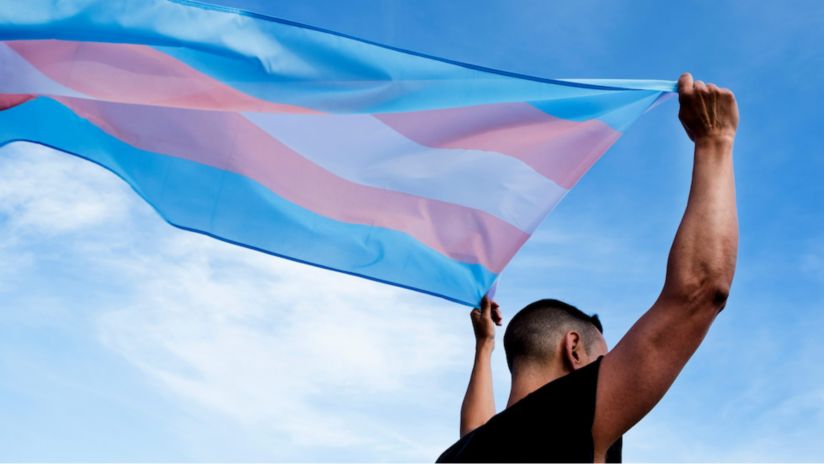Brilliant minds find room to thrive through a new approach to hiring
People with autism are often credited with prodigious skills in mathematics, memory, and complex problem solving. What’s usually less celebrated is a list of attributes that reads like a checklist for the perfect employee: phenomenal loyalty, sure-fire reliability, meticulous attention to detail, and extraordinary creativity.

People with autism are often credited with prodigious skills in mathematics, memory, and complex problem-solving. What’s usually less celebrated is a list of attributes that reads like a checklist for the perfect employee: phenomenal loyalty, sure-fire reliability, meticulous attention to detail, and extraordinary creativity.
When our Network and Service Orchestration team was looking for a new software developer, 34-year-old Dave Morrissey was the perfect fit. As well as being a highly-qualified programmer with a deep knowledge of APIs, operating systems, and all manner of code, he came with a list of “passion projects” that really impressed the recruiters – developing remote access protocols for a multitude of apps, maintaining a diagramming system with a programmer in South Korea, even teaching himself to speak Japanese and Chinese through his own handwriting-recognition software.
The only challenge? Dave had done all these tasks on his home PC, because he’d never been able to secure a full-time job.
Twenty years ago, Dave might have been stuck at home forever, the fruits of his ingenious mind never shared beyond family and close friends. But today, thanks to progressive recruitment practices that specifically target neurodiverse recruits, companies like Telstra are increasingly connecting with people like Dave – and creating the conditions to provide work that is suitable, comfortable, and incredibly fruitful.
“In the year that Dave’s worked for us, he’s done everything from reviewing and cleaning code, to documenting processes, creating dashboards, and building a retrieval tool that’s revolutionised transcript searches in our contact centres,” says Sharon Kavanagh, a chapter lead in the Network and Service Orchestration team. “Dave’s easy to get along with, his attention to detail is amazing, and his knowledge of technology blows my mind. It’s really astonishing that he’s never worked before.”
A promising pilot
Dave was among six recruits who joined Telstra last year through a pilot recruitment program that uses non-traditional approaches to find and recruit autistic and other neurodiverse employees. The program is run in conjunction with Specialisterne, an international agency that supports inclusive recruitment and workplace practices – in this case, replacing formal interviews with a series of work-based assessments designed to gauge the skills and ‘fit’ of potential recruits, and to start productive conversations with Telstra’s hiring managers.
When the pilot was first mooted in late 2020, it aimed to recruit two people and monitor their progress to see if a larger program was warranted. But that number quickly escalated, with six individuals eventually joining as demand for neurodiverse talent increased across the business. In 2023, the launch of a full-scale program is likely to see many more neurodiverse recruits joining different parts of Telstra.
“I’m extremely proud of what this program has achieved,” says Serap Potocki, the program’s manager. “We’ve found there’s an extraordinary breadth [in neurodiverse people], and you shouldn’t just limit yourself to hiring people into tech and maths roles – because there are others who are quite brilliant in creative roles or design or marketing roles.”
One of those brilliant recruits is Marcus Helvig, who joined the Digital Accessibility team that ensures that Telstra’s digital services fill the needs of anyone who faces a physical or cognitive challenge. Marcus, who wasn’t diagnosed with autism until his 40s, believes he’s finally found his calling in the Digital Accessibility team, where he records issues faced by people with disability using Telstra’s websites and designs metrics to measure defects identified by the team.
“Autism’s impact on the way my mind works has allowed me to easily understand the data, the implications of differences in how it’s recorded, and the identification of potential issues to make the resulting metrics meaningful,” explains Marcus. “For most of my life, these skills have seemed normal to me, and it’s hard for me to recognise that they may not be universal skills that everyone shares.”
Marcus was one of 18 candidates shortlisted from 186 applicants for the six roles, which included full-stack engineers and cloud specialists as well as accessibility analysts. The screening process involved an introduction to the roles by Telstra’s hiring managers, followed by a series of simulated work activities and tasks designed to gauge the relevant skills and interests of each candidate.
There are so many barriers in normal recruitment processes that prevent brilliant people from getting through the door. By making simple changes that allow them to showcase their skills you can match them to jobs and help leaders support neurodiverse talent and allow them to thrive.
The process is two-way traffic, with hiring managers delivering presentations on the jobs they’re looking to fill, and candidates making short presentations on the assessments they complete. “The whole approach is designed to facilitate open, honest conversations about the roles on offer,” says Serap, “and give the candidates a chance to discuss and demonstrate their skills over several days – not just one interview, which can be intimidating.”
As well as providing Telstra with profiles of the candidates, Specialisterne provides the hiring managers with training on ways to support the new recruits and mentor them through their early months. The agency also follows up with each candidate for at least three months after their employment, and longer if necessary.
Avoiding small talk
“Telstra have been very good to me so far,” adds Dave. “They let me be flexible with working at home and doing my university studies in office hours. I have visual sensitivities that prevent me from looking at mathematical symbols for too long, or working under bright lights – which can make me feel tired and unable to concentrate. But my managers know this, and they let me use different LEDs in the office to help me concentrate.”
Cassandra Lutzko, a product management specialist who joined Telstra through the program, says the extensive support offered to recruits – the feeling of belonging to a community, and not being judged – made her feel immediately welcome.
“From the outset, I didn’t have to worry about whether or not to disclose my autism, which has been a challenge in the past,” says Cassandra. “Better still, I knew my manager and their boss also knew, which opened the doors to many constructive conversations.
“Most importantly, I knew that I had a community of fellow neurodiverse people around me, who were just like me, but in different ways. Being openly neurodiverse meant I was introduced to fellow colleagues who were neurodiverse themselves, or had strong ties to the neurodiverse community.”
Although an estimated one in 59 people is on the autism spectrum, some 34% of working age Australians with autism are unemployed, according to the Australian Bureau of Statistics. This means they are three times more likely to be unemployed than people with disability – and almost eight times more likely than people without disabilities.
“Our neurodiverse recruitment program pilot is supporting diversity by removing barriers to workforce participation for people with autism,” says Rebecca Holden, Human Resources Executive at Telstra. “And without a doubt, our business is richer for having neurodiverse talent.”


